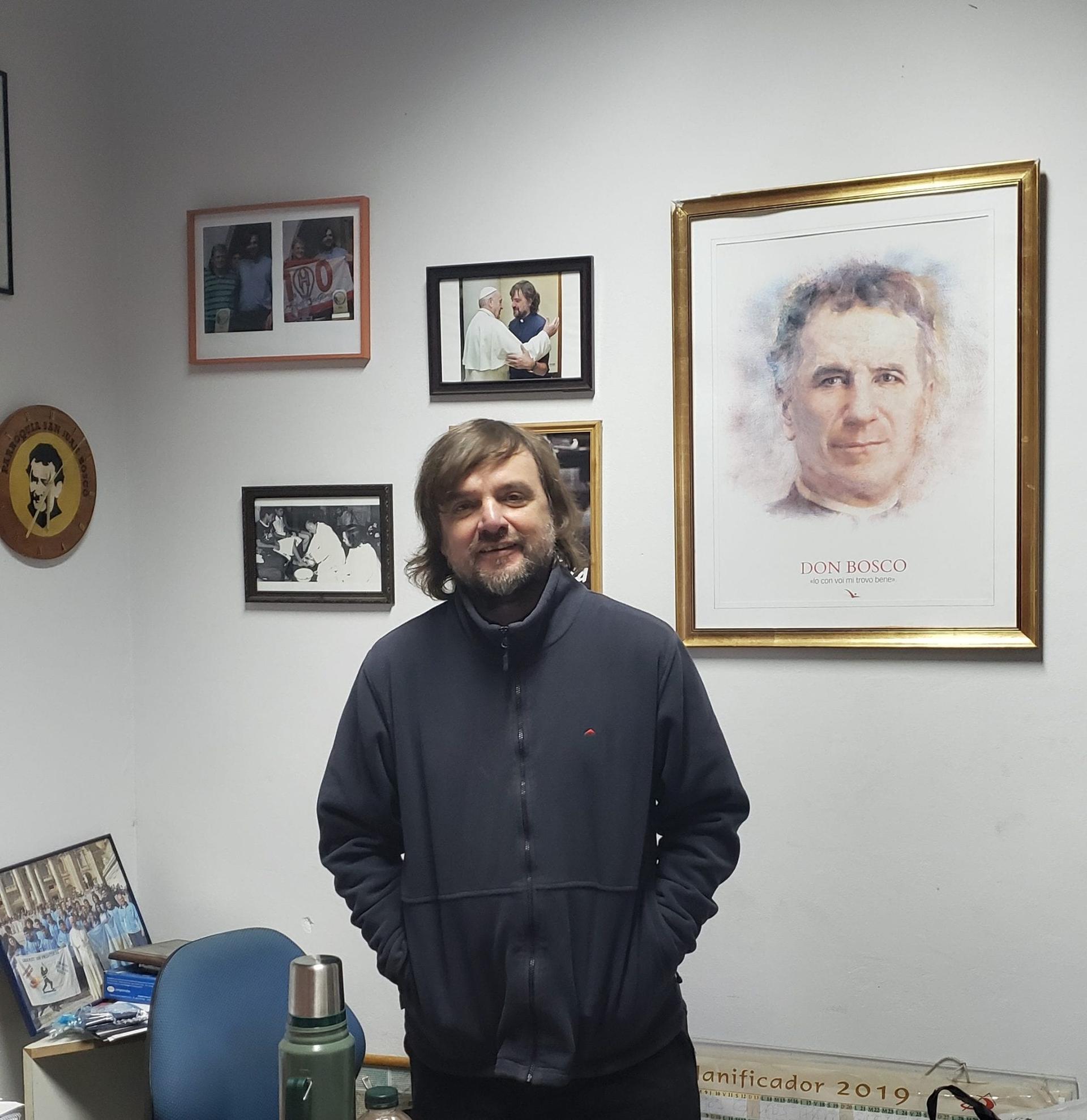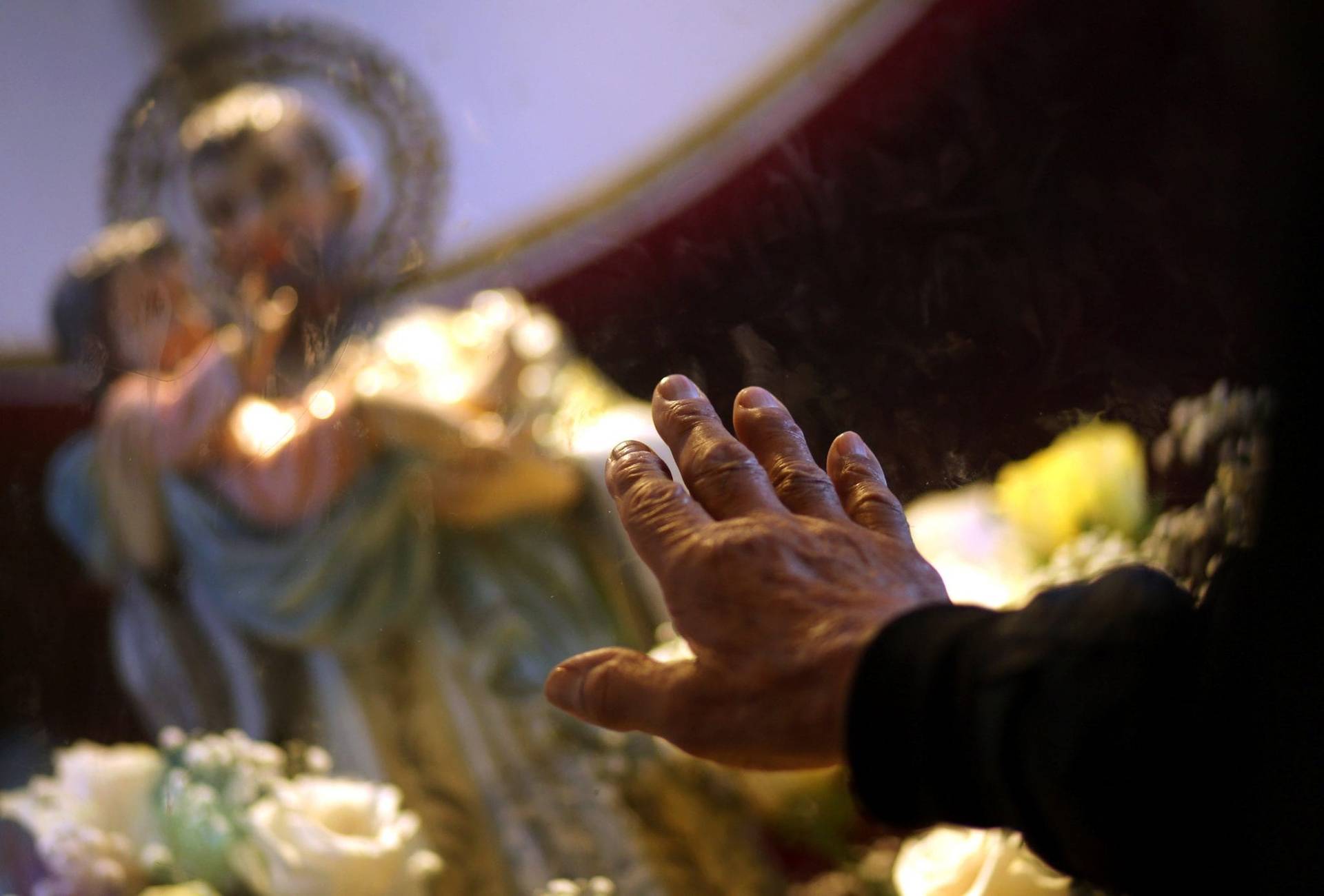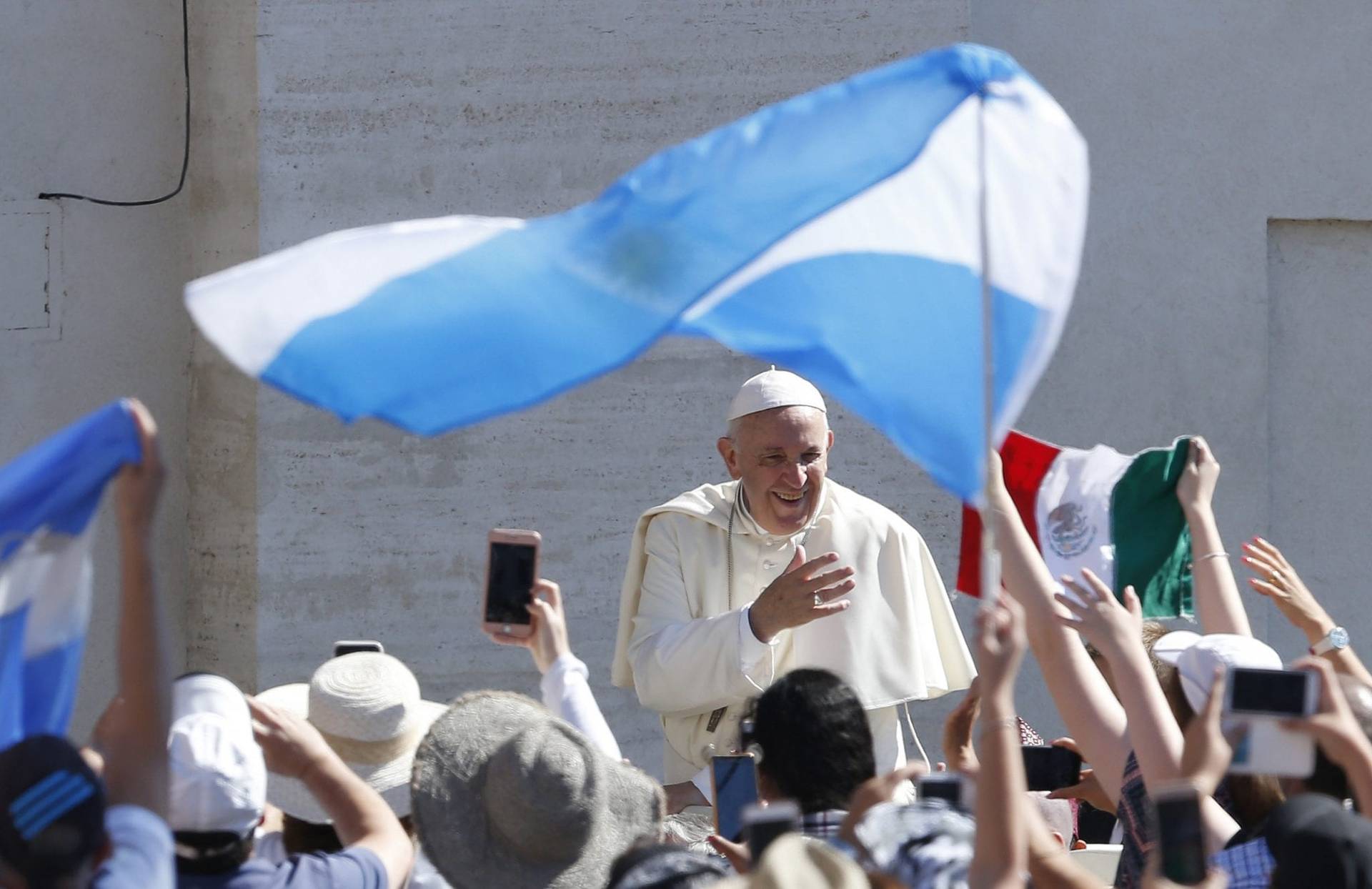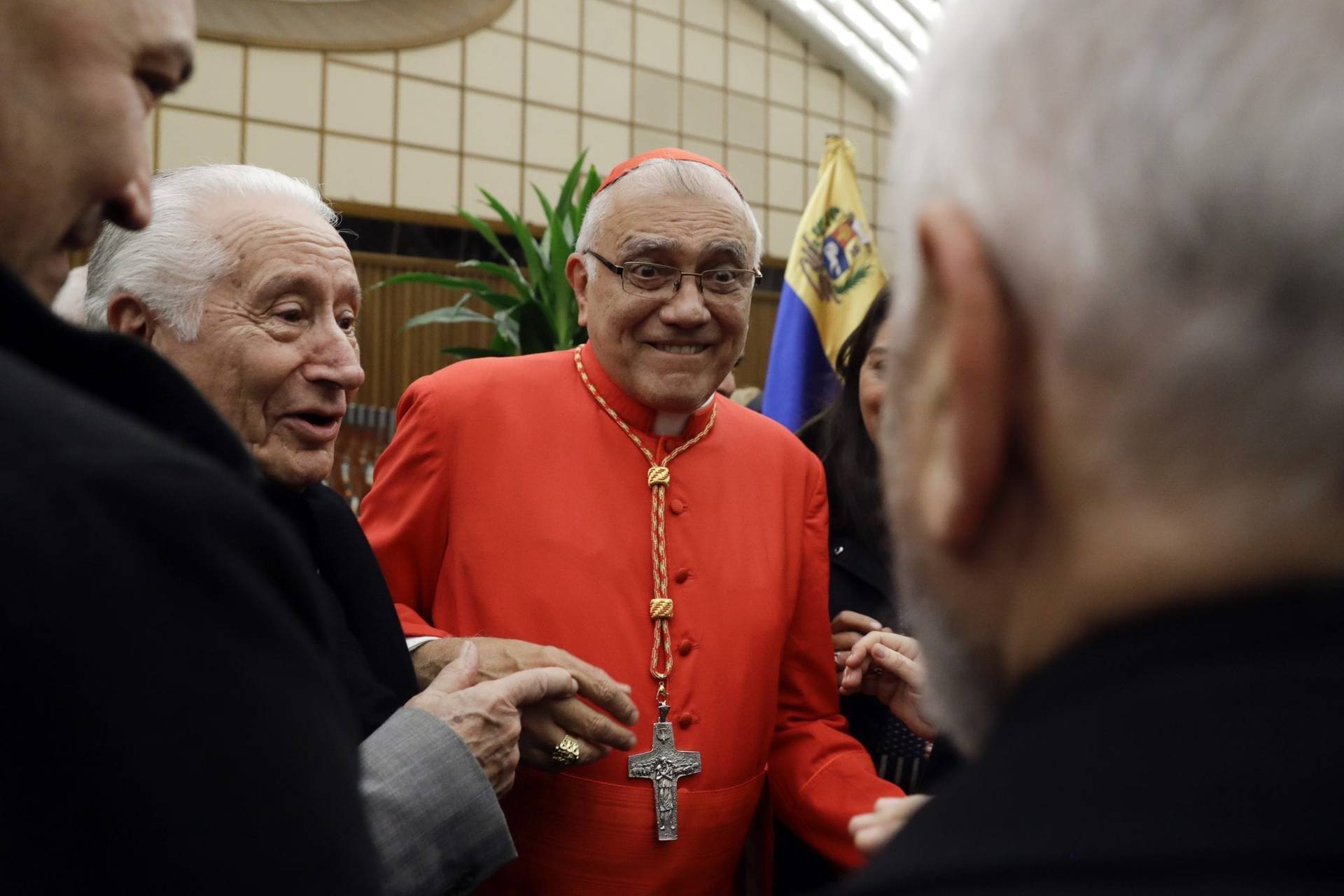Editor’s note: This is the first of a series on the “villero priests,” a group of close to 40 priests who live and work in Buenos Aires’s slums, exploring their work, their thoughts and the reality of the people living in the shantytowns Pope Francis was known to spend much of his time in when he was the archbishop of Argentina’s capital.
ROSARIO, Argentina – On April 22, 2009, then-Cardinal Jorge Mario Bergoglio – today Pope Francis – spoke out against the threats against one of the priests in the Archdiocese of Buenos Aires who had criticized the drug trade, calling it “the venom [young people] have in their hands.”
The priest had been threatened because he was one of the 19 signatories of a document that denounced the “de facto decriminalization” of drug trafficking in the slums of Buenos Aires.
“That threat can’t be taken lightly, because we don’t know what it can end in,” the cardinal said at the time, adding that he was convinced the threat against one of the members of the Priest Movement for the Emergency Villas, known in Argentina as the “curas villeros,” came from drug traffickers, whom he described as “merchants of darkness.”
Refusing to give the name of the priest who’d been threatened, Bergoglio stood behind the document presented by the priests, saying that he “takes on that document personally. What the signatories say is as I said it in person.”
Ten years later, there’s no doubt as to whom the future pope was defending when he denounced the “dark proposal of drugs” and their merchants: Father José María Di Paola, known to friends and foes as “Padre Pepe.”
At first, Di Paola refused to let the threat stop his work in the slum known as Villa 20-21, where he worked in Our Lady of Caacupe parish. However, when a year later the threats continued, and included those who worked closely with him, he was “exiled” to Santiago del Estero, one of Argentina’s poorest states in the country’s northern region, to continue his work.
He had the support of Bergoglio and the invitation of the local bishop.
Some years later, in 2013, as his former archbishop was being elected pope, Di Paola decided to go back to Buenos Aires to continue the work in the slums. With Caacupe under the care of other members of the curas villeros, he decided to settle in La Carcova, some 50 minutes from downtown Buenos Aires by car.
“The entire parish is a slum,” Di Paola told Crux on July 16. Tens of thousands live in the parish, that is geographically so large that “we don’t have one youth ministry group, we have four. We don’t have one formation center, we have two, and we need a school and an annex to reach everyone.”
Those who live in La Carcova are among the poorest people in what is known as Greater Buenos Aires. The capital is home to nearly three million people, but the Greater Buenos Aires region has a population of 13 million, a third of the country’s total.
Though some of the people living in La Carcova have one-room homes made with bricks and cement, the majority live in shacks “built” with wood, metal sheets and a strong black and white plastic material used in agroindustry to protect crops. When it rains, it’s sometimes hard to distinguish inside from outside.
According to a 2016 study by NGO Techo, an estimated three million people in Argentina live in these conditions. Beyond the precariousness of the homes, 60 percent of the slums flood when it rains, and 40 percent of them don’t have access to refuse collection systems. In addition, 70 percent of the shantytowns have a “risk factor” either inside or within 30 feet, including a river, a highway or a garbage dump.
The area Di Paola lives in began to grow in the early 2000s, after an economic crisis that left many lower middle-class Argentines out in the streets, roaming the city’s garbage dumps looking for food and recyclable materials they could sell. This activity of collecting paper, aluminum, copper, and plastic is known here as “cartonear” – translated loosely as “looking for paperboard” – and has since become a major source of employment.
Among those living in the Buenos Aires slums, many are from Argentina’s interior, and others come from neighboring countries such as Paraguay. The latter mostly work in construction and are paid under the table.
“The situation in the provinces – including Greater Buenos Aires – is a lot more precarious than in the capital,” Di Paola told Crux. “When I arrived to the 20-21 in 1996, the slums were invisible. Back then, we were a small group of people working and we had nothing: No agreements with the government, no organizations helping us and the state was absent. The situation here, is that of the slums in Buenos Aires 13 years ago.”
Di Paola is a man who holds nothing back. He spoke with Crux in between sessions of a radio show he shares with Marcelo Figueroa, a Presbyterian minister close to Pope Francis. During the show, recorded in the parish of San Juan Bosco, located on the very edge of La Carcova, the two discuss violence, and the priest ticks off virtually every candidate in the upcoming national elections, scheduled for October, and he doesn’t hide his discontent with all of them.
“People today need a job, not a social plan,” Di Paola said. “Slogans are useless. Many words are being used, but there are very few actual proposals.”
RELATED: In Pope’s backyard, Church struggles with increasingly polarized politics
Close to the pope, but not in contact with him
In late June, 37 slum priests released a statement defending the pope and calling for a halt on the “spin” local media give to Francis’s words and deeds. The clerics called for a stop to the seemingly never-ending string of papal spokespersons in Argentina, where people boasting that they are friends of the pope who put words in his mouth has been a sport since his election to the See of Peter on March 13, 2013.
Di Paola is quick to clarify, “I don’t speak with the pope. I don’t exchange emails with him, yet some news outlets think that speaking wrongly of what we do is to speak wrongly of the pope.”
The examples of things the slum priests have said being labeled as an “order from Rome” abound, but few are clearer than what happened last year, when the country debated the legalization of abortion. Di Paola was one of two Catholic priests – the other being Bishop Gustavo Carrara, also a slum priest – who spoke during a weeks-long open debate in Argentina’s Congress.
Di Paola delivered a strong speech, in which he said that poor women, who are often used as a reason to justify “free, legal and safe abortions,” don’t actually want abortions, and accused the government of Mauricio Macri of opening the debate because he was ordered to do so by the International Monetary Fund, which was in the process of negotiating the South American nation’s largest ever loan.
RELATED: Argentina ‘slum priest’ blames abortion push on IMF
“At the time, many journalists wrote, without any evidence, that the pope had ordered me to say what I said,” Di Paola told Crux. “Never mind that it wasn’t true: The message I delivered was drafted here, in this parish, by me and a group of Catholics who have long been analyzing what’s going on in the country.”
“Many of those who are in favor of abortion claim to be against the IMF, but they ignore the fact that the policies of population control are a condition of the IMF or any other international organization that lends you money,” Di Paola said.
The message is aligned with Francis’s repeated denunciations of “ideological colonization” and foreign aid having a price tag. Yet, the priest insisted, the message he delivered was “written in Argentina with no intervention whatsoever from the pope.”
Yet the “bad image” being created by the mass media about the pope, “with their constant need to speak wrongly of him” and putting words in the pope’s mouth about Argentina, is something that Di Paola has to work against.
“I have the opportunity to be in different environments, with union workers, politicians, industry leaders, and sometimes we bring a proposal to them and they say no to us on the grounds that the pope doesn’t want X or Y,” Di Paola said. “Sometimes I wonder, who told them that, because the pope sure didn’t and neither did his spokesman.”
According to the priest, there’s a “conspiracy” against the pope in Argentina. That conspiracy, however, is not present in La Carcova, where adherence to the pope “is total.”
“You will find that the support for the pope in the slums is much higher than that in the upper classes,” Di Paola said. “People identify with the things he does: He chooses to live austerely; he speaks and chooses to be with those who are in the peripheries, who have been discarded by society and the system. He stops the popemobile to accept a mate tea [or] greet an infirm child, or he goes to an island [Lampedusa] to be with the people who barely survived crossing the Mediterranean Sea.”
“That’s what the people in the slums see, and that who we know Francis to be,” Di Paola said.
Follow Inés San Martín on Twitter: @inesanma
________________________________________________
Crux is dedicated to smart, wired and independent reporting on the Vatican and worldwide Catholic Church. That kind of reporting doesn’t come cheap, and we need your support. You can help Crux by giving a small amount monthly, or with a onetime gift. Please remember, Crux is a for-profit organization, so contributions are not tax-deductible.











